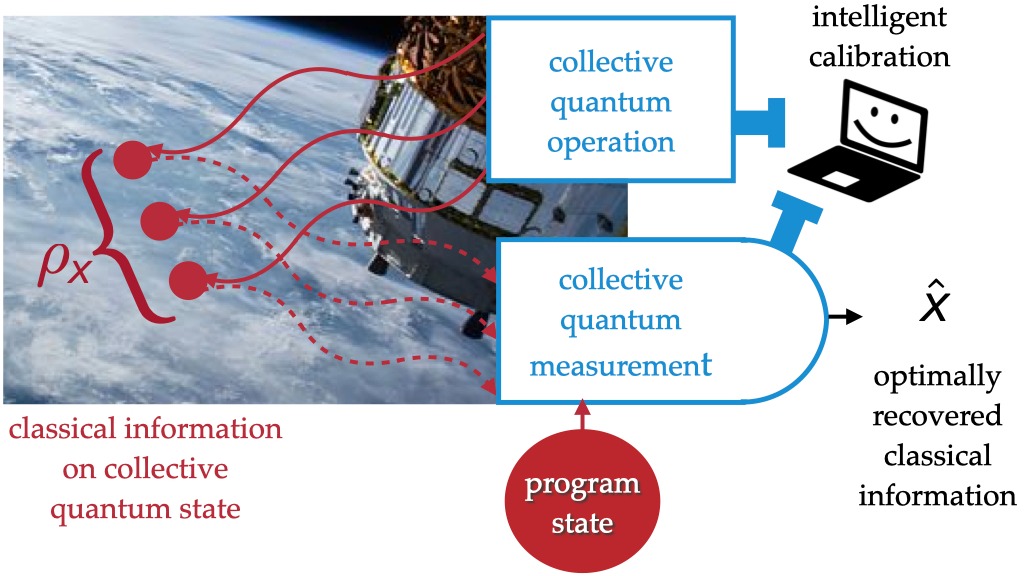Quantum information theory (QIT) has the potential to boost the performance and security of space-based technologies such as optical communication, time and frequency transfer, gravimetry and remote sensing for Earth observation [1-3]. From a general perspective, such applications rely on the use of quantum systems as more precise signals or probes to carry classical information, previously written by a sender or via the interaction with an unknown object to be measured. However, a key problem in QIT is to devise and implement quantum measurements able to optimally extract relevant classical information from the state of a quantum system [4-8].
Indeed, quantum statistical inference is often affected by three main issues:
- optimal measurements require to act jointly on multiple quantum systems at once [4-6];
- optimal measurements depend on the problem-specific quantum states subject to the inference process [4-6], i.e. they are not easily reconfigurable;
- an abstract description of the measurement does not immediately translate into a circuit design, due to current limits in the operations available in real quantum computers and the difficulty of finding optimal setups of such noisy devices [6-8].
We therefore propose a case study on the feasibility of quantum statistical inference with near-term quantum computers and small-scale quantum devices. The objective is to design programmable and self-calibrating quantum devices for the discrimination of general quantum probe states and implement them as proof-of-principle in IBMQ (qubit) and/or XanaduSF (optical) platforms. We envisage such devices to be incorporated into satellites and stations, boosting communication and remote sensing. Hence we focus on programmability, i.e., task-specific reconfiguration, and self-calibration, i.e., autonomous adaptation to experimental changes by learning from experience [8]. The project will assess the quantum advantage of such devices for their practical realization.

